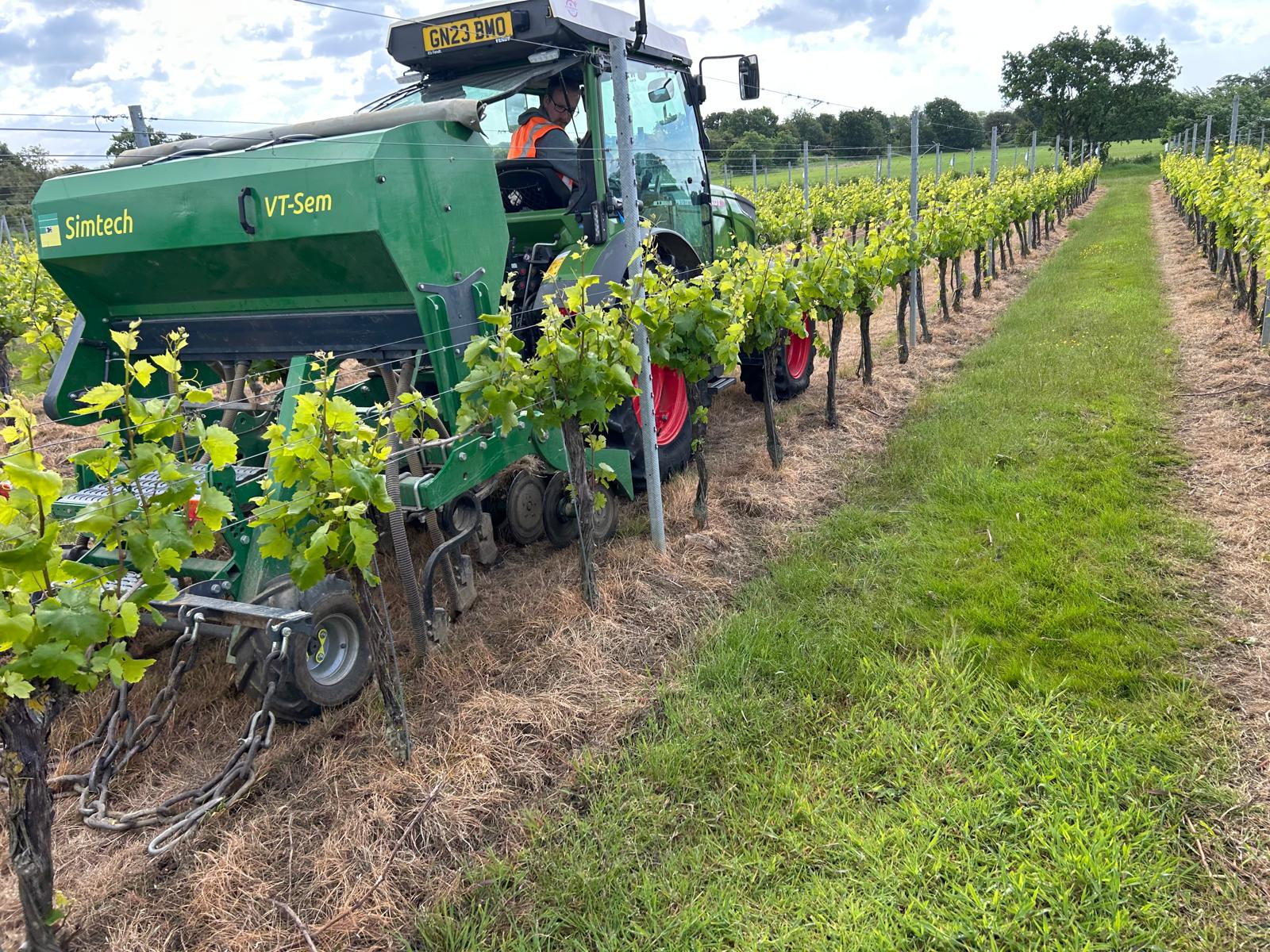Below-ground listening devices monitor biodiversity in vineyard trials

A new research project funded by Growing Kent & Medway to increase carbon and increase biodiversity in UK vineyards will use cutting-edge technology to monitor the impact of its trials.
Led by Niab, the research project will see companion plants sown between the rows of vines to deter pests and attract beneficial insects. As well as traditional sampling methods that visually count the number of insects in the plots, an acoustic data survey will capture the sounds of invertebrates living in the soils to monitor their numbers.
The research team will apply chitosan, a natural plant protection product, to the crop during the growing season to help boost the health of the soil and control plant diseases present in the vines. The team at Niab’s Wine Innovation Centre will test the impact of the companion planting and natural deterrents on the final quality of the grapes and wine.
The £50,000 research trial is one of six new projects recently funded by Growing Kent & Medway to advance sustainable innovation in UK plant-based food and farming.
Dr Belinda Kemp, who leads the Wine Innovation Centre at Niab, said: “Planting companion plants within the vineyard alleys will create beneficial associations between the flowers and the vines, enhancing the grapevines' growth, health, and productivity.
“We are taking a holistic view of the vineyard management to reduce disease pressure, increase beneficial insects, decrease pests, and increase soil health in vineyards without impairing the grape juice and wine chemistry. We’re also using two types of chitosan (a mushroom-derived chitosan and one made from crustacean shells), which act as a biostimulant and biopesticide, helping to prevent vine mildew and rot vine infections.”
Carlos Abrahams, Director of Ecoacoustics at Baker Consultants, said: “By using ecoacoustic technology to 'listen in' on the soil, we can detect the presence and activity levels of invertebrates that play vital roles in soil health and vineyard resilience. This non-invasive method offers a powerful new way to assess how sustainable practices, like companion planting and biostimulant application, are influencing biodiversity below ground.
“It’s an exciting opportunity to apply cutting-edge ecological monitoring in partnership with Niab’s vineyard team – building on our previous research with growers in the Champagne region."

Drilling chamomile seeds at Gusbourne vineyard, Kent
The trials will be undertaken at Niab’s East Malling Research Vineyard and commercial wine producers, Gusbourne Estate, and Westwell Wine Estate in Kent. Phoebe French, Communications Manager and R&D Lead, WineGB, who represents the interests of the UK wine industry, said: “The proposal represents an important and timely endeavour that will help mitigate economic losses and increase the sustainable solutions to grape growing challenges. This could drastically reduce the need for fungicide applications to prevent diseases in grapevines, by providing an environmentally sustainable strategy to reduce yield losses and maintain crop quality to support the UK wine production industry.”
Michel Lockhart, CEO, Chitolytic, who is supplying significant in-kind contributions to the project and the chitosan product, said: “We’re excited to support this meaningful research, as it can move industry towards more sustainable standards. When we demonstrate that natural interventions, like chitosan, deliver measurable improvements in soil health, pest management, and fruit quality simultaneously, we’re moving towards solving today’s challenges by supporting nature’s intelligence instead of working against. This is critical since sustainability is no longer optional, it’s essential.”
Simon Barnes, Director, Growing Kent & Medway, who funded the trial, said: “Innovation and collaboration for the regional wine sector is a vital element for the success of Growing Kent & Medway. Through facilitating academic excellence into practical delivery, we are able to provide new knowledge to ensure a productive, resilient English wine industry. We look forward to seeing further and greater collaborations of this type with the wine industry to build on four years of partnership-driven innovation facilitated by Growing Kent & Medway.”
You can find out more about the project at this year’s Fruit Focus during the Research Vineyard tour at 12pm, 9th July 2025 at East Malling.
